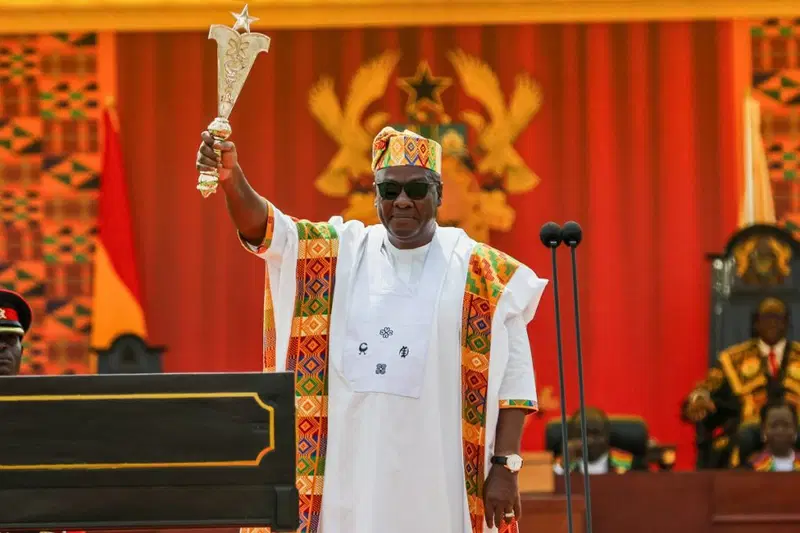
John Mahama has officially taken the oath of office as Ghana’s new president in a grand ceremony held on Tuesday at Black Star Square, Accra.
The event, attended by dignitaries and world leaders, also saw Naana Jane Opoku-Agyemang inaugurated as Ghana’s first female vice president.
Mahama, 66, succeeds Nana Akufo-Addo, who defeated him in the 2016 presidential election. His return to power, after a seven-year hiatus, follows a victory in the December 2024 election, where he secured 6.3 million votes (50%) against Mahamudu Bawumia of the ruling New Patriotic Party (NPP). Bawumia, who conceded defeat, acknowledged the people’s desire for change.
A Pledge for Renewal
Addressing a jubilant crowd clad in the green, red, black, and white colors of his National Democratic Congress (NDC) party, Mahama expressed hope for a new chapter in Ghana’s history.
“Today should mark the opportunity to reset our country,” he said, wearing Ghana’s national dress, as cheers echoed across the square.
The ceremony was marked by vibrant celebrations, with attendees waving Ghanaian and NDC flags, dancing to drums, and the sound of vuvuzelas.
Prominent Attendees
The inauguration was attended by prominent African leaders, including Nigerian President Bola Ahmed Tinubu, Senegal’s Bassirou Diomaye Faye, Burkina Faso’s Ibrahim Traoré, Kenya’s William Ruto, DR Congo’s Félix Tshisekedi, and Gabon’s Brice Oligui Nguema. Presidents Julius Maada Bio of Sierra Leone and Mamadi Doumbouya of Guinea also joined other former leaders and officials in witnessing the historic event.
Economic Recovery as a Priority
Mahama returns to office with a daunting task: reviving Ghana’s struggling economy. The West African nation, known for its political stability, has faced severe economic challenges in recent years, including a debt default and a $3-billion IMF bailout. Inflation, which peaked at 50% in 2022, has since eased to 23%.
The president vowed to address these challenges and foster economic growth. “The people of Ghana have spoken, and we are committed to delivering the change they have entrusted us to bring,” he said.
Ghana’s Political Landscape
Since transitioning to multi-party democracy in 1992, Ghana’s two main political parties, the NPP and the NDC, have alternated power. With a population of 33 million, the country remains Africa’s top gold exporter and the world’s second-largest cocoa producer.
Mahama’s return marks a new chapter in Ghana’s history, with many hopeful for transformative leadership to steer the country toward sustainable growth and development.


